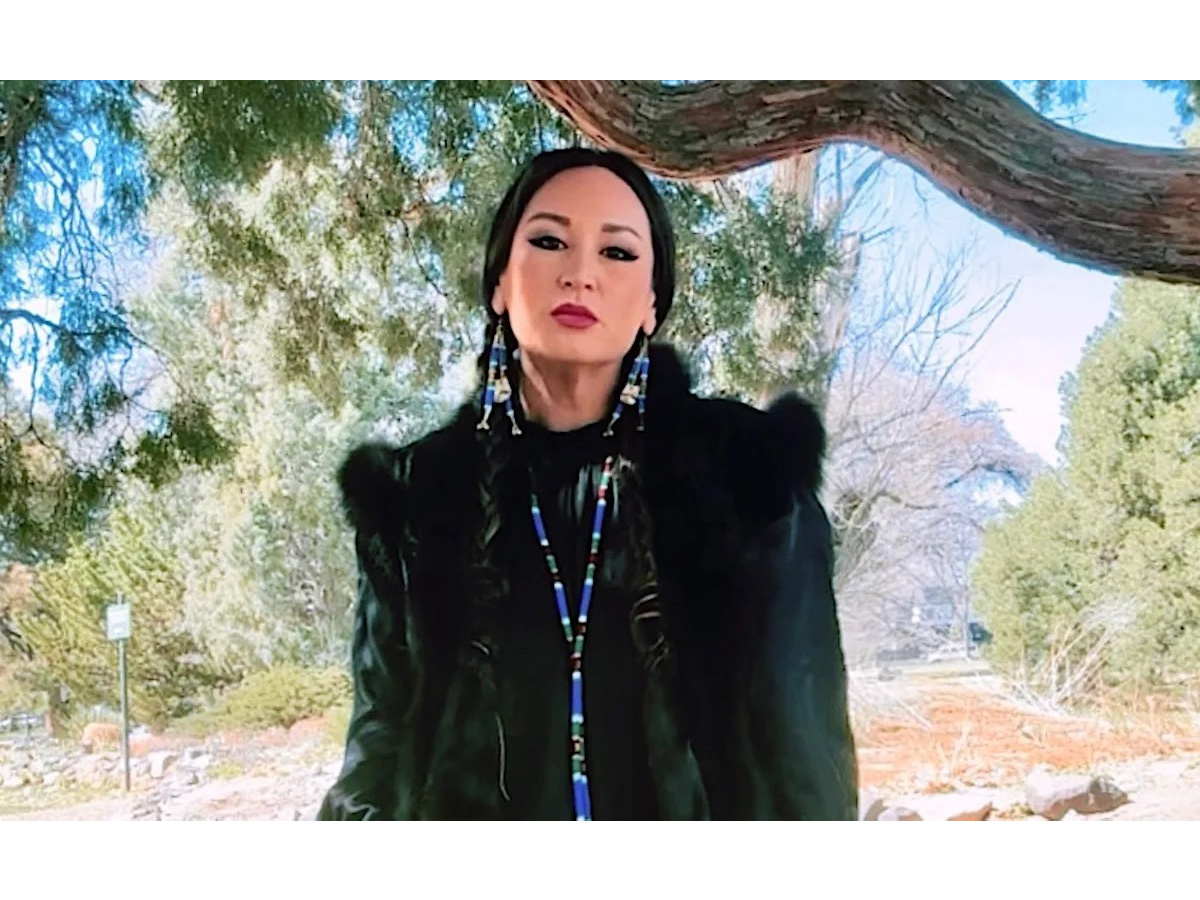
Danielle SeeWalker, a Húŋkpapȟa Lakȟóta muralist and activist, said she was on an airplane in May when she received a text message from a staff member of the Vail Artist in Residency program notifying her of an “unfortunate situation.” The town of Vail, Colorado, had canceled her summer residency after community members complained about a painting she made of a Native woman wearing a keffiyeh entitled “G is for Genocide.”
SeeWalker, represented by the American Civil Liberties Union (ACLU) of Colorado, is now suing Vail, alleging the town violated her free speech rights enshrined in both the federal and Colorado constitutions when it canceled her residency. The 10-day residency, launched in 2023 as an extension of the Art in Public Places program overseen by Vail’s city council, enlisted SeeWalker to paint a mural and host community workshops focusing on Native American culture.
According to the lawsuit, local Rabbi Joel Newman wrote in an email to town officials that SeeWalker’s “G for Genocide” artwork — posted on her Instagram account — defended the claim that Israel was committing genocide, which was “abhorrent to the Jewish world.” Hyperallergic has attempted to contact Newman for comment.
The town of Vail declined to comment on the lawsuit, citing pending litigation.
The acrylic painting on canvas, SeeWalker told Hyperallergic in a phone interview, had nothing to do with the residency, nor was it any indication of what she wanted to include in the town mural she had planned to work on.
“I want to be super clear that that particular piece of artwork was a standalone piece from the rest of my body of work,” she said. “It absolutely had nothing to do with Vail or the residency, or any theme that I was planning to do while I was a resident there.”

The artist added that the work emerged out of her emotional response to Israel’s bombardment of Gaza and the parallels she had drawn between Native American and Palestinian struggles. SeeWalker sold prints of the work to benefit the United Nations Crisis Relief’s efforts to provide humanitarian aid to Gaza.
“I kept thinking to myself how devastating this is, the stories I was hearing and the displacement of these people,” SeeWalker said. “This is a very familiar story that my people endured, and it was weighing heavy on me.”
Even though SeeWalker said she didn’t plan on inserting mentions of Palestinian solidarity in her commissioned work, she claims that when she asked if there were any restrictions for what she could paint, she was told there were none.
After media reports of her residency cancellation in May, SeeWalker said several law offices reached out to her and told her that what she had experienced could constitute a legal violation.
SeeWalker’s lawsuit alleges that Vail retaliated against the artist’s expression of free speech, causing her “to suffer an injury that would chill a person of ordinary firmness from continuing to share views on current events.”

The residency, the lawsuit claims, had already informed SeeWalker that she would have a three-bedroom condo to share with her two sons for the duration of the program and announced her participation to 6,740 subscribers to the town’s newsletter in May. The ACLU’s lawsuit states that SeeWalker is entitled to monetary relief for “Vail’s violation of her First Amendment rights.”
By the time her residency was canceled, SeeWalker told Hyperallergic she had already designed a mockup and purchased the materials for the mural, and reserved works for display in an exhibition in Vail.
“When it was abruptly canceled, it was not only a huge disadvantage in terms of having the opportunity to hang art or create art, talk about art, have a cross-cultural exchange, do workshops, etc,” SeeWalker told Hyperallergic. “But just a huge hole left in my schedule where I had passed up other opportunities because of my commitment to Vail.”
The ACLU of Colorado also asks the court to bar Vail from future “viewpoint discrimination in its Artist in Residency program.”
“They really wanted diversity to be an integral part of their program, and so they loved the fact that not only was I a woman, but I was a Native American artist,” SeeWalker said. “It’s no surprise I talk about some controversial topics, about injustices that my people communities have faced for generations and even to today.”

